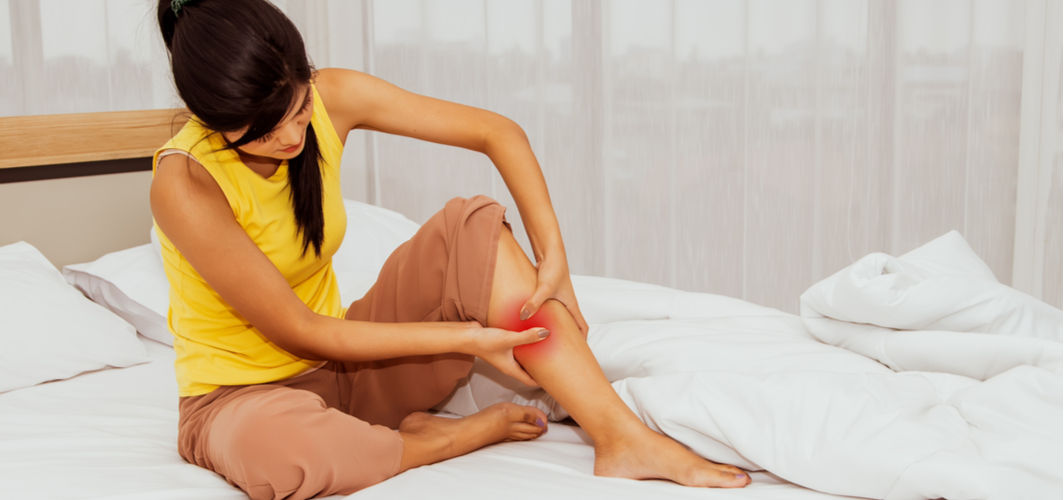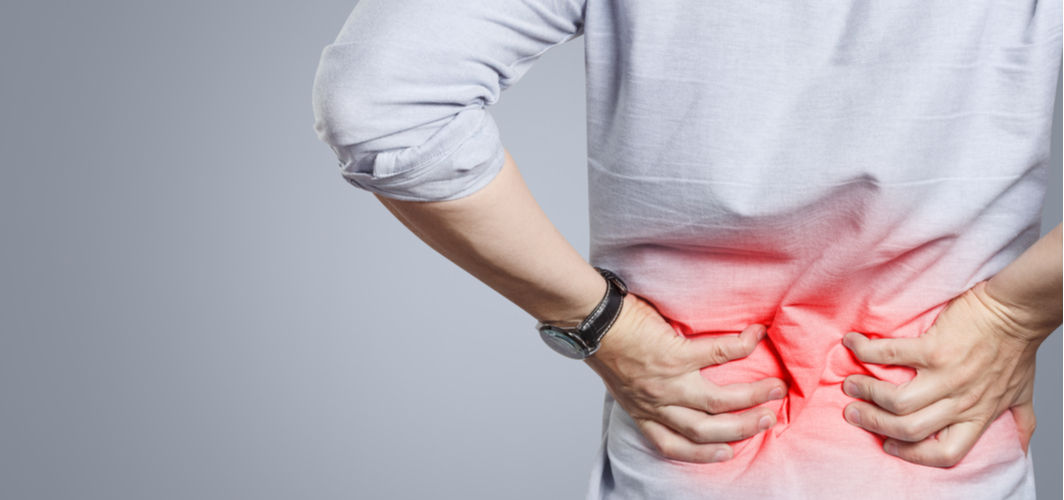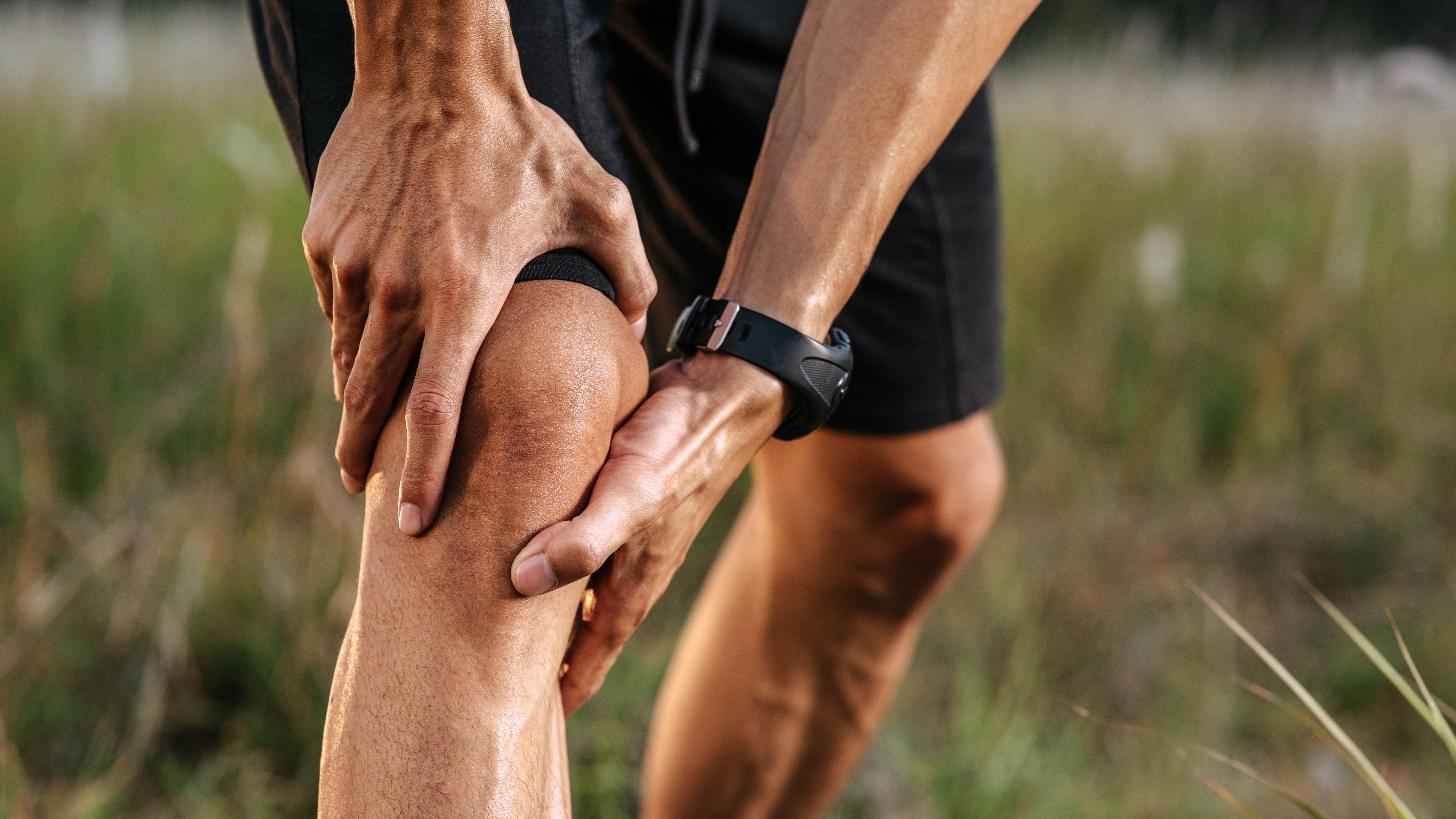Orthopedic Conditions
Leg Cramps at Night: Should You Be Concerned?
3 min read
By Apollo 24/7, Published on - 01 December 2021, Updated on - 20 September 2023
Share this article
1
37 likes

Most people experience leg cramps that last for a short duration. While they are generally harmless, leg cramps that usually occur at night or when one is inactive could be associated with underlying medical conditions such as cirrhosis, vascular disease, hemodialysis, etc. Such leg cramps are also referred to as ‘nocturnal leg cramps’, and are more common in older women. Certain medications can also cause nocturnal leg cramps.
What causes leg cramps at night?
Most leg cramps occur due to extended periods of standing or inactivity, resulting in muscle fatigue. They can also occur due to calcium deficiency or intake of certain medications. Older adults may experience involuntary leg cramps, which can get quite intense.
Leg cramps usually affect the calf muscles (back of the leg), and sometimes muscles in the thighs and feet. Besides the sharp pain, one may also feel a lump of muscle tissue beneath the skin. The pain and soreness from sudden cramps can stay up to 24 hours, and the thigh area may also feel tightened and stiff, affecting gait and mobility.
Other causes of leg cramps include:
- Not drinking enough water
- Mineral deficiency
- Age above 50 years
- Pregnancy
- Medical conditions such as osteoarthritis, dehydration, low calcium levels, pregnancy, alcoholism, nerve compression, and heart diseases
- Use of certain medications such as beta-blockers, antipsychotics, diuretics, and statins
- Overuse of muscles
Recommended Reading: 10 Foods that are Unhealthy for Your Bones
How to prevent and get relief from leg cramps?
Unless there is an underlying medical condition that needs treatment, leg cramps usually resolve on their own. However, some measures that can offer relief from severe leg cramps include:
Stretching: Stretching the muscle by pulling your toes towards your shin can ease leg cramps. Massaging with pain-relieving gels can also help reduce muscle stiffness. Stretching and massaging before bedtime may reduce incidences of night-time leg cramps.
Staying hydrated: Dehydration leads to mineral depletion and electrolyte imbalance, affecting muscle function. Drinking at least 6 to 8 glasses of water or fluids like juices, coconut water, etc. can prevent dehydration and muscle cramps.
Standing and walking: Since muscle cramps often result from prolonged inactivity, standing up and walking may help ease the pain. Wiggling the leg while walking and pressing the feet on the floor while standing can also help relax the muscles and prevent frequent cramps.
Applying heat and cold packs: Use of a heating pad or taking a warm bath can alleviate muscle cramps. Similarly, a bag of ice can act as a soothing compression.
Medication: In case of severe muscle cramps, doctors may recommend pain killers like acetaminophen and ibuprofen. Previously, an anti-malarial medicine, quinine, was prescribed for leg cramps. However, due to its side effects like bleeding issues, irregular heartbeat, breathing difficulties, etc., the use of this medication is no longer recommended.
Are leg cramps a cause of concern?
Leg cramps can be agonizing, especially if they occur at night as they are known to affect sleep and cause severe insomnia. Fortunately, simple measures like stretching, applying hot/cold packs, and staying hydrated can help prevent cramps. One must, however, consult a doctor if cramps get unbearable, last longer than 10 minutes, or occur too often. The doctor will be able to identify the exact cause of the cramps and offer suitable treatment strategies.
Recommended Reading: Plantar Fasciitis: Managing Persistent Heel Pain
Orthopedic Conditions
Leave Comment
Recommended for you

Orthopedic Conditions
Don’t Ignore Your Back Pain! It Can Be Sciatica
Consistent back pain can be a sign of sciatica. Read to know the ways to prevent it.

Orthopedic Conditions
5 Best Massage Oils: Natural Joint Pain Healers
Experiencing joint pain? A massage with any of these 5 crucial joint pain oils can do wonders to quickly ease joint pain, swelling, and tension.

Orthopedic Conditions
10 Signs When You Need to Consult an Orthopaedic!
Orthopaedic doctors are specialized doctors who are experts in diagnosing and treating diseases related to bones and joints. We mentioned a few [10] signs or reasons for which one should consult the orthopaedic doctor. So, do read this blog and know why and when you should consult the orthopaedician.
Subscribe
Sign up for our free Health Library Daily Newsletter
Get doctor-approved health tips, news, and more.
Visual Stories

Natural Ways to Get Relief from Arthritis
Tap to continue exploring
Recommended for you

Orthopedic Conditions
Don’t Ignore Your Back Pain! It Can Be Sciatica
Consistent back pain can be a sign of sciatica. Read to know the ways to prevent it.

Orthopedic Conditions
5 Best Massage Oils: Natural Joint Pain Healers
Experiencing joint pain? A massage with any of these 5 crucial joint pain oils can do wonders to quickly ease joint pain, swelling, and tension.

Orthopedic Conditions
10 Signs When You Need to Consult an Orthopaedic!
Orthopaedic doctors are specialized doctors who are experts in diagnosing and treating diseases related to bones and joints. We mentioned a few [10] signs or reasons for which one should consult the orthopaedic doctor. So, do read this blog and know why and when you should consult the orthopaedician.